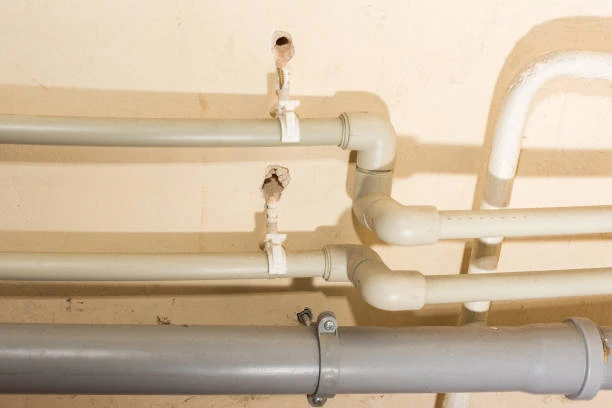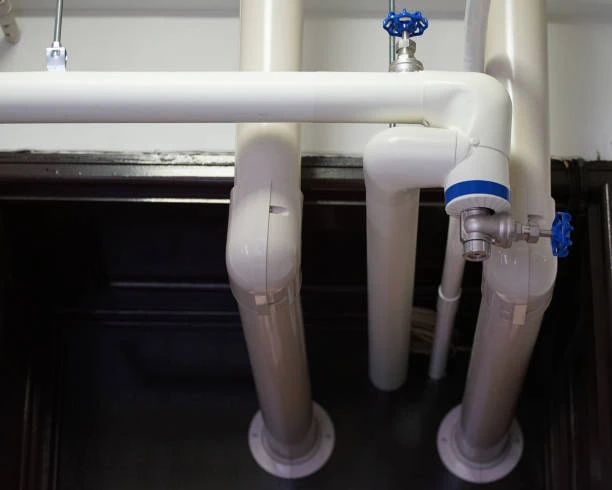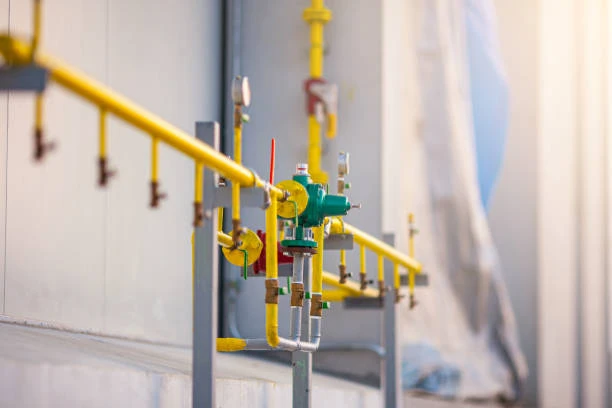Introduction to PE Pipes in Industrial Applications
PE pipe are increasingly used in various industrial applications. Their versatility, durability, and cost-effectiveness make them a popular choice. This article explores the properties, benefits, and applications of PE pipes in industrial settings.
Properties of PE Pipes
PE pipe possess several properties that make them suitable for industrial use. They are lightweight, flexible, and resistant to corrosion. These properties contribute to their widespread adoption in various industries.
Lightweight
PE pipe are lighter than many other piping materials. This makes them easier to handle, transport, and install. The reduced weight also lowers transportation costs.
Flexibility
PE pipe offer excellent flexibility. This allows them to withstand ground movements and vibrations without cracking. Their flexibility also makes them suitable for installation in various terrains.
Corrosion Resistance
PE pipes resist corrosion from chemicals and environmental factors. This enhances their longevity and reduces maintenance costs. Corrosion resistance makes PE pipes ideal for transporting aggressive fluids.
Benefits of Using PE Pipes
Using PE pipes in industrial applications offers several benefits. These include cost savings, ease of installation, and environmental sustainability. The following sections detail these benefits.
Cost Savings
PE pipes are cost-effective compared to traditional piping materials. Their lightweight nature reduces transportation and installation costs. Additionally, their durability lowers long-term maintenance expenses.
Ease of Installation
Installing PE pipes is straightforward due to their flexibility and lightweight nature. They require fewer fittings and joints, simplifying the installation process. This reduces labor costs and project completion times.
Environmental Sustainability
PE pipes support environmental sustainability. They are often made from recyclable materials. Their corrosion resistance reduces the need for chemical treatments, lowering environmental impact.
Applications in Industrial Settings
PE pipes are used in various industrial applications. These include water supply systems, chemical processing, and gas distribution. Each application benefits from the unique properties of PE pipes.
Water Supply Systems
PE pipes are ideal for industrial water supply systems. They transport water efficiently and resist corrosion from chemicals and minerals. Their flexibility allows them to navigate complex industrial layouts.
Chemical Processing
In chemical processing plants, PE pipes handle aggressive chemicals safely. Their corrosion resistance ensures long-term reliability. They also withstand high pressures and temperatures, making them suitable for various chemical processes.
Gas Distribution
PE pipes are used in industrial gas distribution systems. Their flexibility and resistance to corrosion make them ideal for transporting gases. They also handle high-pressure applications, ensuring safe and efficient gas distribution.
Installation Techniques
Proper installation techniques ensure the optimal performance of PE pipes. These techniques include trenchless installation, fusion welding, and electrofusion. Each method offers specific advantages in different industrial scenarios.
Trenchless Installation
Trenchless installation involves laying PE pipes without extensive digging. This method minimizes surface disruption and reduces installation costs. It is particularly useful in urban and industrial areas with limited space.
Fusion Welding
Fusion welding joins PE pipes by heating and fusing their ends. This creates a strong, leak-proof joint. Fusion welding is widely used in industrial applications for its reliability and efficiency.
Electrofusion
Electrofusion uses electrical currents to heat and fuse PE pipes. This method ensures precise and strong joints. Electrofusion is suitable for installations requiring high-pressure and leak-proof connections.
Maintenance and Inspection
Regular maintenance and inspection enhance the performance and longevity of PE pipes. Industrial applications require periodic checks for wear, damage, and leaks. Following proper maintenance protocols ensures system reliability.
Regular Inspections
Conduct regular inspections to identify potential issues early. Look for signs of wear, corrosion, or leaks. Addressing problems promptly prevents system failures and extends the lifespan of PE pipes.
Preventive Maintenance
Implement preventive maintenance practices to ensure the smooth operation of PE pipes. Clean the pipes regularly to remove debris and buildup. Check joints and connections for any signs of damage.
Environmental Impact
PE pipes contribute to reducing environmental impact in industrial applications. Their recyclability and resistance to corrosion reduce waste and chemical use. This supports sustainability initiatives and minimizes environmental footprints.
Recyclability
PE pipes are often made from recyclable materials. At the end of their lifespan, they can be recycled into new products. This reduces waste and conserves resources.
Reduced Chemical Use
The corrosion resistance of PE pipes eliminates the need for chemical treatments. This reduces the release of harmful substances into the environment. It also lowers the overall environmental impact of industrial operations.
Challenges and Solutions
Despite their advantages, PE pipes face challenges in industrial applications. These include potential damage from UV exposure and mechanical impacts. Implementing protective measures addresses these challenges.
UV Protection
PE pipes can degrade when exposed to UV radiation. Use protective coatings or bury the pipes to shield them from sunlight. This prevents UV-induced damage and extends their lifespan.
Mechanical Protection
Protect PE pipes from mechanical impacts using protective casings or barriers. This prevents damage from external forces and ensures the integrity of the piping system.
Future Trends
The use of PE pipes in industrial applications continues to grow. Advancements in material science and installation techniques drive this growth. Future trends include the development of more durable and versatile PE pipes.
Material Advancements
Ongoing research focuses on enhancing the properties of PE pipes. Developments in polymer technology aim to improve durability and flexibility. These advancements will expand the range of industrial applications for PE pipes.
Innovative Installation Techniques
New installation techniques enhance the efficiency and reliability of PE pipes. Innovations such as robotic installation and advanced welding methods reduce labor costs and improve joint integrity.
Conclusion
PE pipes offer numerous benefits for industrial applications. Their lightweight, flexible, and corrosion-resistant properties make them a preferred choice. Understanding their properties, benefits, and applications ensures optimal performance in industrial settings. By utilizing high-quality PE pipes, industries can enhance efficiency, reduce costs, and support environmental sustainability.
Connect
IFAN is a Chinese manufacturer of plastic pipes, fittings and valves with 30 years of experience. If you are interested in IFAN copper fittings, copper valves, plastic pipes and fittings, please contact us. IFAN offers you a variety of standard pipes to meet your specific needs. Click below to learn more about IFAN’s wide range of affordable and cost-effective valve products and piping system related products.
We will reply your email or fax within 24 hours.
You can call us at any time if there is any question on our production.
For more information,pls visit our webside https://waterpipefitting.com/
Pls Mailto: [email protected]
Whatsapp: + 86 19857948982














Recent Comments